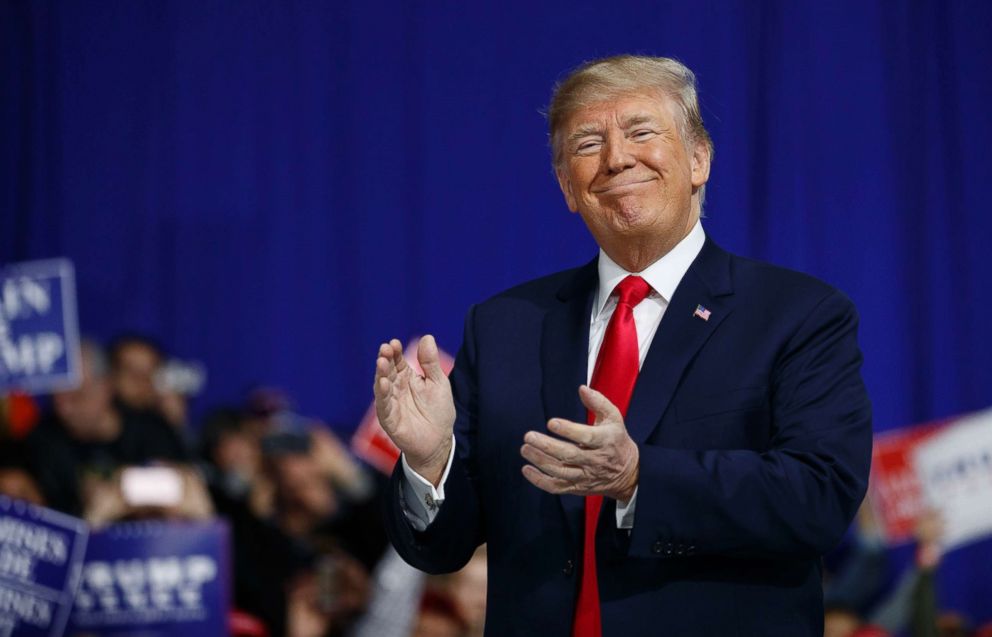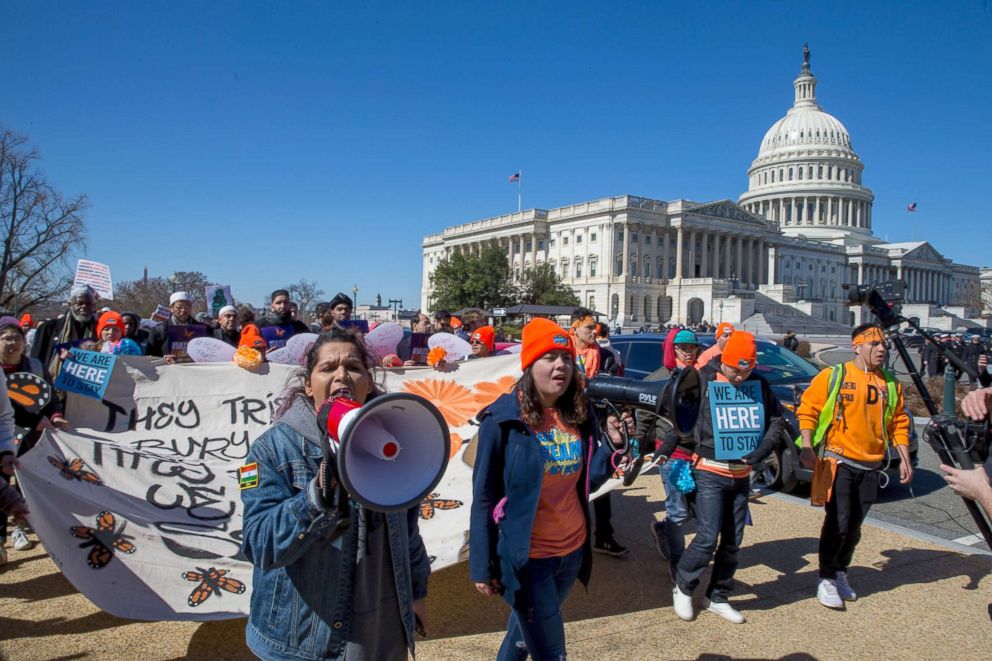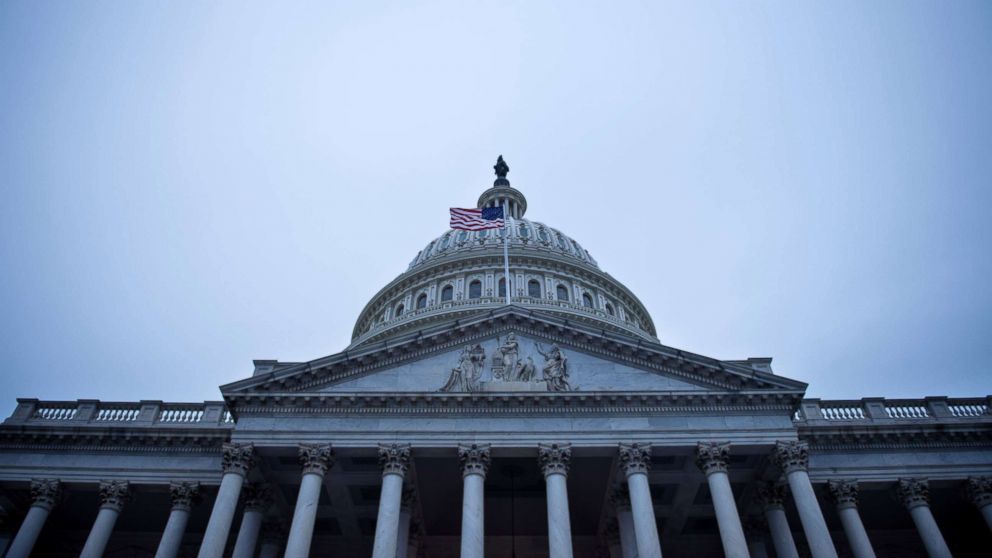Congress' agenda looms ahead of midterms
Legislating typically gets pushed to the wayside during the summer of an election year, but Congress is shaping up to be anything but quiet in the weeks and months ahead.
The House is readying for a showdown over immigration. And Senate Republicans are trying to stop a growing trade war ignited over President Donald Trump’s decision to impose tariffs on U.S. allies.
Tensions are particularly heightened because Senate Majority Leader Mitch McConnell is warning his colleagues that their typical month-long August vacation might be canceled.
Here’s what to expect in the coming weeks ahead.
Trump's ‘American First’ tariffs
It seems Trump’s “America’s First” approach has left Senate Republicans feeling gobsmacked.
“This is dumb,” Nebraska's GOP Sen. Ben Sasse said in a statement.
“Make America 1929 again," he added.
“This is a big mistake,” GOP Sen. Lamar Alexander of Tennessee said in a statement.
“Bad news," tweeted Pennsylvania GOP Sen. Pat Toomey.
Those are just some of the reactions from Senate Republicans since last week in light of the administration’s decision to impose tariffs on imports of steel and aluminum from the European Union, Canada, and Mexico.
Senate Republicans are outraged because they thought the tariffs on steel and aluminum would be aimed only at China, not against close U.S. allies.
They're also worried Trump’s protectionist trade policies could hurt their chances at winning at the polls this November – undermining Republicans’ legislative wins this year, such as confirming conservative judges to the courts, and cutting taxes.
“We should build on our success in overhauling the nation's tax code with complementary trade policies that, rather than favoring one narrow industry, make all sectors of the U.S. economy more competitive,” Senate Finance Committee Chairman Orrin Hatch said in a statement last week. “In light of the mounting evidence that these tariffs will harm Americans, I will continue to push the administration to change course.”

Several GOP senators are coming out in support of a bill that would require congressional approval for Trump's tariff decisions.
But McConnell downplayed the chances that Congress would ultimately pass a bill reining in Trump's trade powers during an event in Kentucky last week.
The Senate GOP leader said there was "not much" lawmakers could do, noting any legislation would have to be signed by the president or have enough support to overcome a veto, according to Kentucky publication Insider Louisville.
“Under the trade law, the president has pretty much all the ability to do these things, so there’s not much we can do to impact it. It’s really an executive branch activity. ... It’s just that I think many of us feel that it shouldn’t be done," McConnell said.
During a White House briefing on Monday, press secretary Sarah Sanders said the tariffs will protect the country.
"For months, the United States has had discussions with Canada, Mexico and the EU to find an alternative," Sanders told reporters. "Without an alternative solution, tariffs are the only measures appropriate to safeguard the country."
Defense funding: Will Trump get his grand military parade?
The Senate could begin consideration of its defense bill this week. The House passed its version of the $717 billion defense bill last month.
"The best way to summarize this bill is that it takes the next steps," Armed Services Chairman Mac Thornberry, R-Tx., said on the House floor last month. "The next steps to rebuilding our military and reforming the Pentagon, the next steps towards strengthening our country's national security."
In the House-passed bill, $617 billion is dedicated to the base Pentagon budget and $22 billion would be authorized for nuclear weapons programs overseen by the Energy Department. Another $69 billion would be for U.S. war efforts abroad.
The bill also green-lights a 2.6 percent military pay raise, the largest increase in troop pay in nearly a decade.
The House’s version of the defense budget bill also gives the secretary of defense the authority to fund a military parade in Washington, D.C., to satisfy Trump’s stated desire for an event like the Bastille Day parade he witnessed during his trip to Paris last year.
But the Senate’s version of the defense budget bill is slightly different. It strictly prohibits the Pentagon from working with any entity that uses telecommunications equipment or services produced by Huawei Technologies Company or ZTE Corporation, which is facing trade law violations over selling sensitive technologies to US adversaries.
The Senate’s version also does not contain any language covering Trump’s desire for an elaborate military parade.

The Senate’s version of the defense bill is titled the John S. McCain National Defense Authorization Act for Fiscal Year 2019, after Sen. John McCain, chairman of the Senate Armed Services Committee.
“I am also deeply humbled that my colleagues saw fit to do me the undeserved honor of designating this year’s NDAA in my name,” McCain said in a statement last month.
He also noted that he was “extremely proud” that the bill incorporates over 300 amendments submitted from members on both sides of the aisle.
The Senate must still pass its version of the bill and the two versions must be reconciled before a final compromise bill can come up for a vote in both the House and Senate later this year.
DACA 5.0 – Is a resolution in the works?
Congress is facing yet another contentious, nearly-impossible-to-win battle over young immigrants who were brought to the country illegally as children, also known as "Dreamers."
Republicans are just five votes short on a petition that would force a freewheeling immigration debate in the House, moving moderate Republicans one step closer to taking up a divisive issue GOP leaders have avoided ahead of the midterms.
House Republicans face a self-imposed deadline this Thursday to come up with a compromise between GOP centrists who want to force a vote on legislation that protects “Dreamers,” and conservatives who want stricter immigration policies and money for Trump’s border wall.
House leaders plan a two-hour private meeting of GOP lawmakers Thursday morning to hash out the differences among the party’s warring factions and try to come up with legislation that could win the president’s support.

House Speaker Paul Ryan spoke out against the move last month, calling it a “big mistake” after meeting privately with House Republicans.
“Like I said last week, obviously, we do not agree with discharge petitions,” Ryan, R-Wis., said at a news conference last month. “We think they're a big mistake. They disunify our majority.”
McConnell also signaled last month that he would not bring a moderate immigration bill to the floor even if it passes the House unless Trump is on board.
“If the House passes a bill that the president indicates he would sign, then I'd be willing to consider it again, even though I gave the Senate every opportunity without any restrictions, wide open for amendment and we couldn't pass anything. So, I'm not going to do that again, I can tell you that," he warned.
The Department of Veterans' Affairs still needs a secretary
The second-largest federal agency in control of the nation’s largest health care system, which also employs more than 370,000 people still does not have a boss.
Now that Adm. Ronny Jackson is very much out of the picture after multiple allegations of workplace misconduct were revealed, the Senate has a new VA secretary nominee to think about.
All eyes are now on Robert Wilkie, who’s been acting secretary ever since former VA Secretary David Shulkin was fired in March.
Veteran's Affairs Committee Chairman Johnny Isakson, a Georgia Republican, put out a statement congratulating Wilkie last month, saying he looks forward to learning more about his long-term views for the VA.
But so far, a confirmation hearing hasn’t been scheduled.
August recess on the brink of cancellation
For a while now, a group of GOP senators has been advocating for the cancellation of the yearly August recess because they'd rather stay in town to pass spending bills and confirm more of Trump's nominees.
McConnell told reporters last month that he'd have "something to say" about the August recess sometime this week. He also warned his colleagues that they shouldn't buy any non-refundable plane tickets.
It's likely McConnell's impending announcement is going to be a thorn in the side for those who were planning on hitting the campaign trail ahead of November's midterm election.
Several vulnerable Democratic senators are up for re-election in states Trump handily won in the 2016 presidential election.
And Trump is on board with the cancellation of August recess, too.
The president has previously hinted he’d be willing to force a government shutdown when funding runs out in September if Congress doesn’t fully fund the border wall. Government funding runs out on September 30th.
Last month he put pressure on the Senate, tweeting: "The Senate should get funding done before the August break, or NOT GO HOME. Wall and Border Security should be included. Also waiting for approval of almost 300 nominations, worst in history. Democrats are doing everything possible to obstruct, all they know how to do. STAY!"




